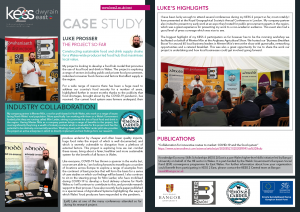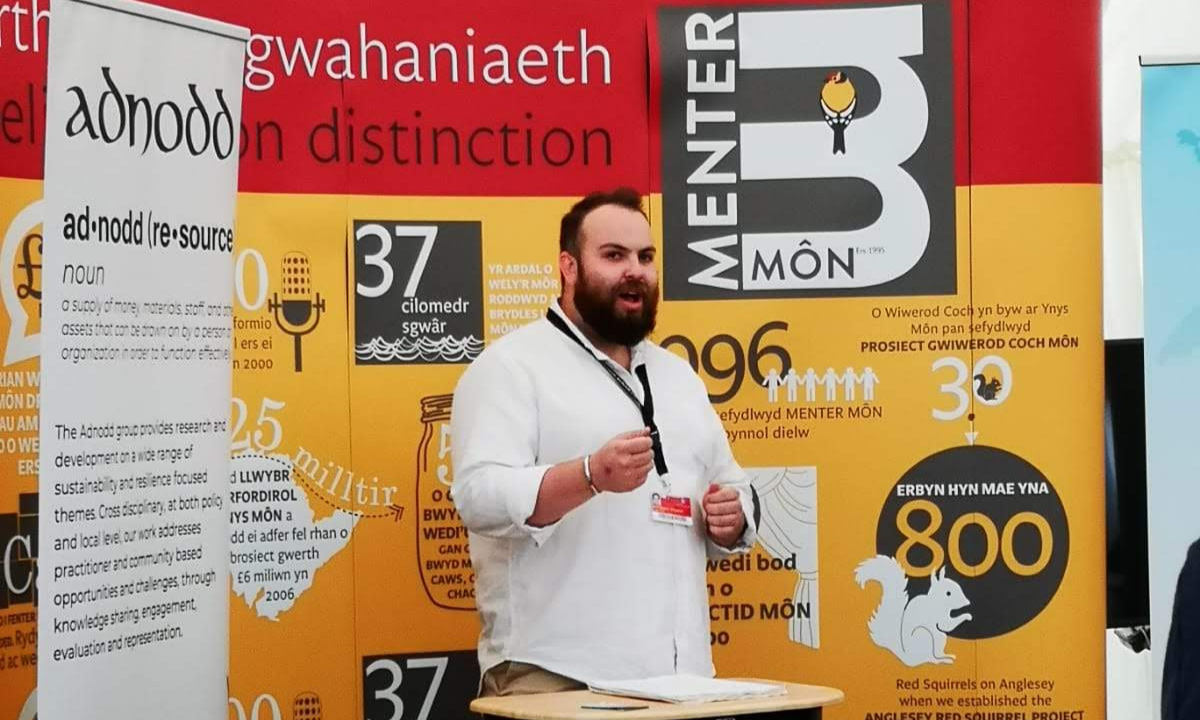
LUKE PROSSER
THE PROJECT SO FAR
Constructing sustainable food and drink supply chains for a Wales-wide producer led food hub that maximises local value.
My project is looking to develop a food hub model that promotes the use of local food and drink in Wales. The project is exploring a range of sectors including public and private food procurement, individual consumer food choices and factors that affect supply in the region.
For a wide range of reasons there has been a huge need to address our country’s food security for a number of years, highlighted further in recent months thanks to the publicity that food shortages, brought about by the COVID-19 pandemic, has received. Our current food system sees farmers underpaid, their produce undercut by cheaper and often lower quality imports, huge food miles the impact of which is well documented, and which is severely vulnerable to disruption from a plethora of external factors. This project is exploring how we can combat these issues, bring about a fairer, healthier and more sustainable system for the benefit of all factors in Wales.
Like everyone, COVID-19 has thrown a spanner in the works but, once we are able to, I am looking forward to travelling to a number of locations across Europe to explore a range of examples from the continent of best practice that will form the basis for a series of case studies on which our findings will be based.
I also continue to sit on the steering group for Môn Larder, who have mobilised during COVID-19 to develop a food delivery scheme for North Wales so I will continue to contribute to this, and provide research support to their process. I have also recently had a paper published in a special issue of Agricultural Systems highlighting the ways in which Wales’ food producers have responded to the pandemic.
INDUSTRY COLLABORATION
My company partner is Menter Môn, a not for profit based in North Wales, who work on a range of issues facing North Wales’ rural population. More specifically I am working with them on a Welsh Government funded pilot they are running called Môn Larder, aiming to promote the use of local food and drink in the region. Having Menter Môn as a company partner brings a range of benefits to the project, but most significantly they bring a wealth of industry contacts which is invaluable for this project and has the potential to be relatively commercially sensitive. Working closely with the Môn Larder pilot also provides the project an active enterprise in which to directly implement and test findings from our research.
LUKE’S HIGHLIGHTS
I have been lucky enough to attend several conferences during my KESS 2 project so far, most notably I have presented at the Royal Geographical Society’s Annual Conference in London. My company partner also invited to present my early work at an expo they hosted for public procurement experts in the region, which was a great experience for presenting my work to a non-academic audience. This event also had a good level of press coverage which was nice to see.
The biggest highlight of my KESS 2 participation so far however has to be the morning workshop we facilitated on behalf of Menter Môn at the Anglesey Agricultural Show. We hosted our ‘Business Breakfast Boost’ for around 40 local business leaders in Menter Môn’s tent at the show with guest talks, networking opportunities and a catered breakfast. This was also a great opportunity for me to share the work our project is undertaking and how local businesses could get involved going forward.
PUBLICATIONS
“Collaboration for innovative routes to market: COVID-19 and the food system” : https://www.sciencedirect.com/science/article/pii/S0308521X20308994?via%3Dihub











